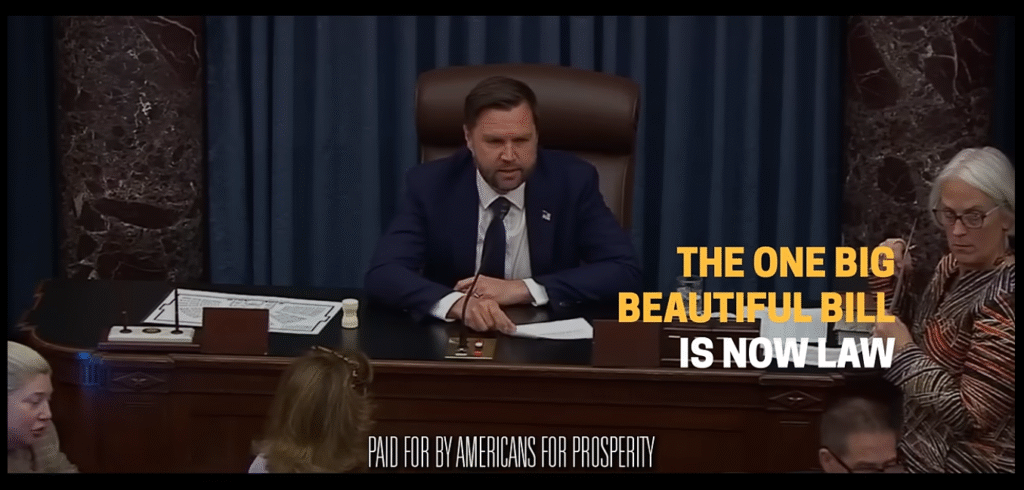When Fear Became Policy Marketing

History offers cautionary examples: take the U.S. internment of Japanese Americans during WWII—a policy sold through posters and propaganda films casting it as a national security necessity. Public reaction varied: early approval born of wartime panic, later shame and legal reversals, yet the messaging never fully unraveled. The law lived on; so did the spin.
From War Boards to Messaging Machines
Franklin D. Roosevelt’s Writers’ War Board and Office of War Information blurred the line between truth and hype, marshaling the media to rally support for government action—even when self-interest lay buried beneath patriotic slogans.
And Now,… One Big Beautiful Bill Ads
Fast-forward to today: Americans for Prosperity (AFP)—a Koch-backed libertarian advocacy group—has launched a national ad and grassroots campaign to “counter misinformation” and extol the virtues of the One Big Beautiful Bill Act (OBBBA), which is already law, by Americans for Prosperity. Their ads spotlight “permanent tax cuts, border security, lower energy costs, and Medicaid reforms” Americans for Prosperity. Social channels confirm it’s a sweeping digital, connected-TV, and event-driven blitz launched just last week Americans for Prosperity Facebook.
During my illness, I was watching streaming services, binge-watching and I was inundated with these ads, which I personally find offensive. It’s already law, move the hell on, right?
AFP’s real job? To ensure that lawmakers who backed the bill remain politically safe. As AFP’s Kent Strang admits, “we need to make sure this good policy is also good politically for the lawmakers who supported it” Americans for Prosperity.
When Ads Quiet Debate, Democracy Suffers
Let’s call it what it is: a post-law marketing campaign posing as civic education. The questions of merit and democratic debate vanish behind polished endorsements and emotional storytelling. The law isn’t standing on its logic—it’s propped up by commercials.
Unfit to Govern: If You Must Advertise…
When an administration can’t trust its own policy to win hearts without ads, democracy is on the ropes. Laws should stand on first principles, not focus-grouped slogans. If your policies are worth passing, they should be worth defending—without having to persuade through propaganda.
